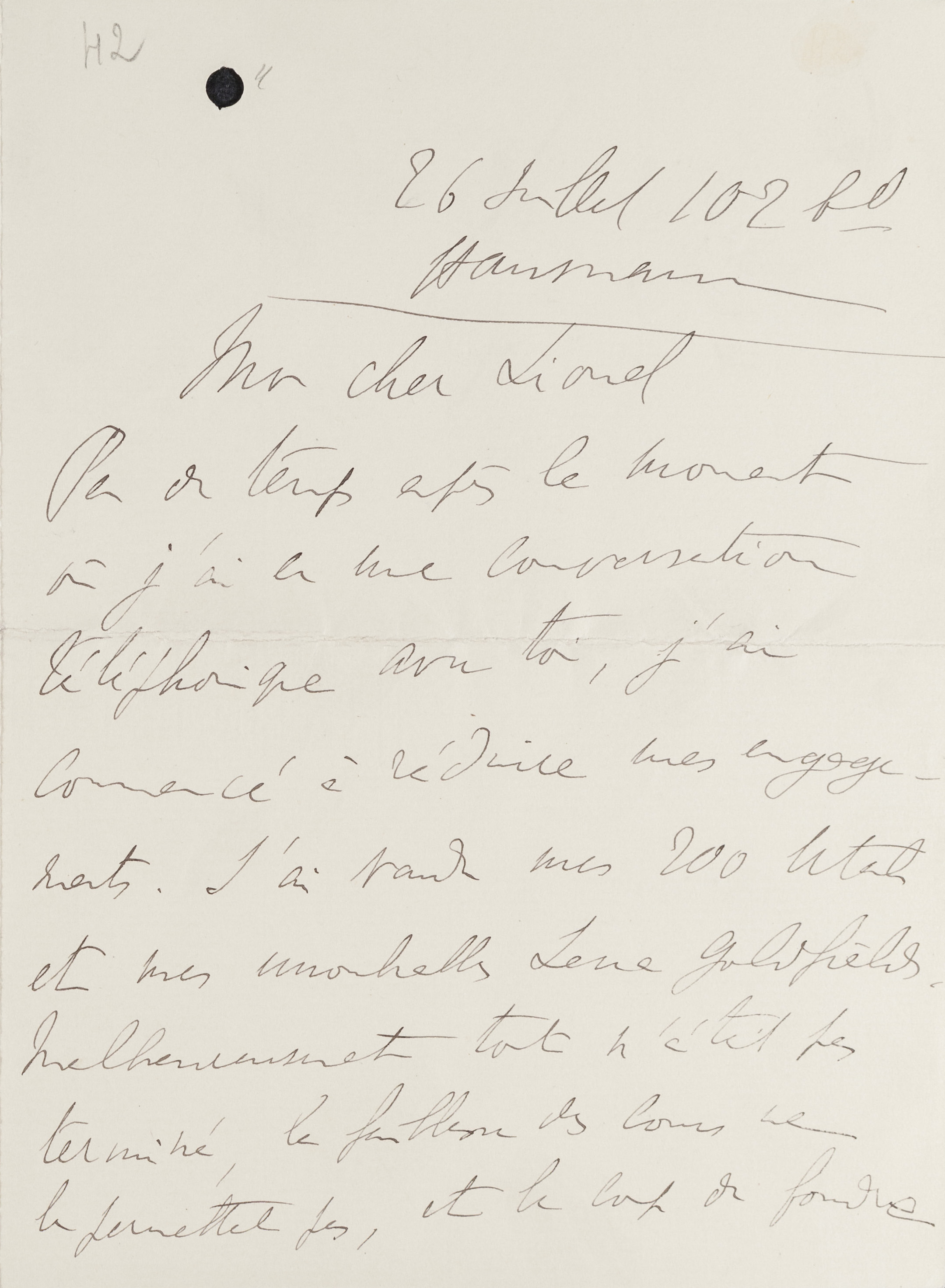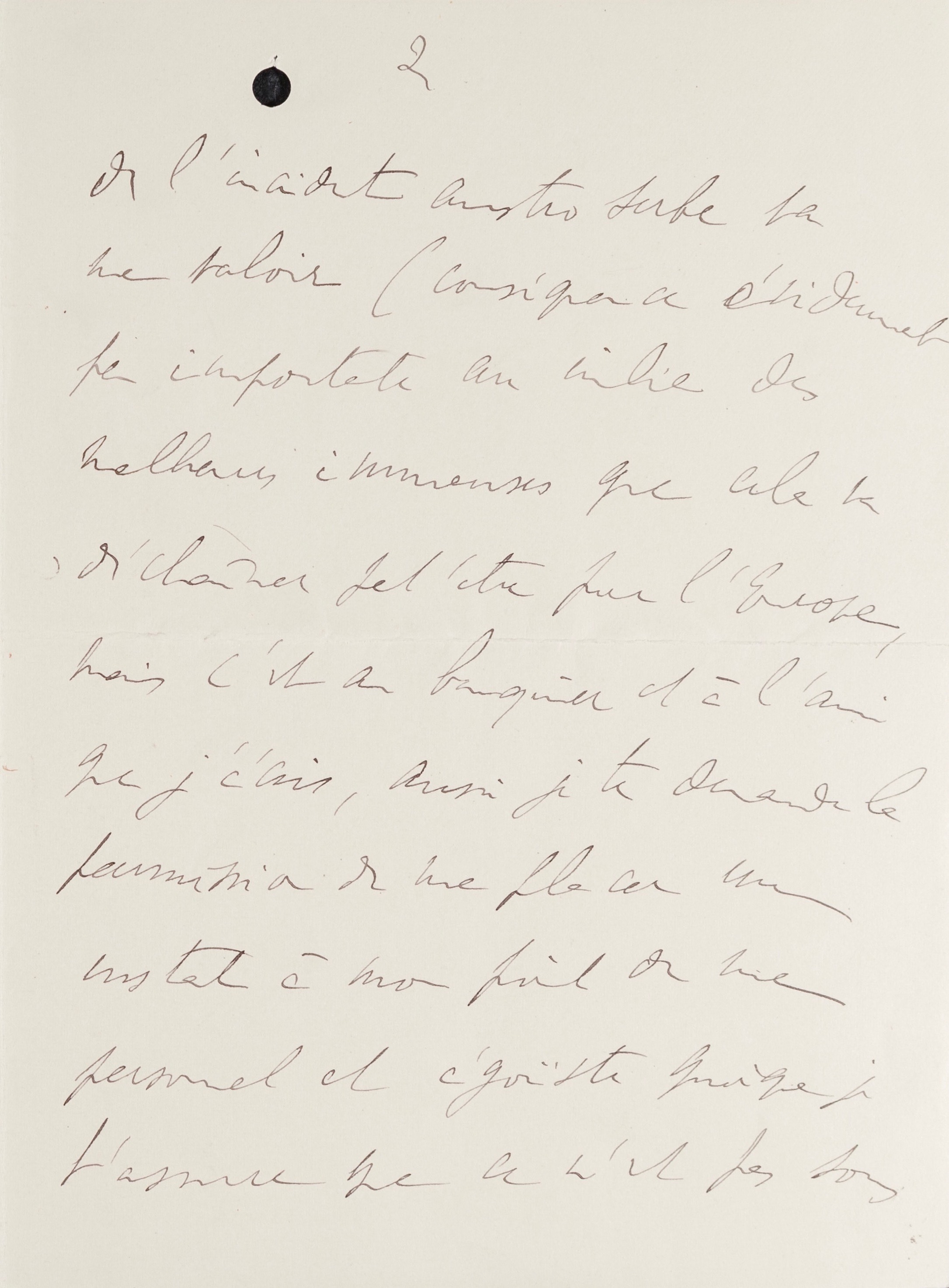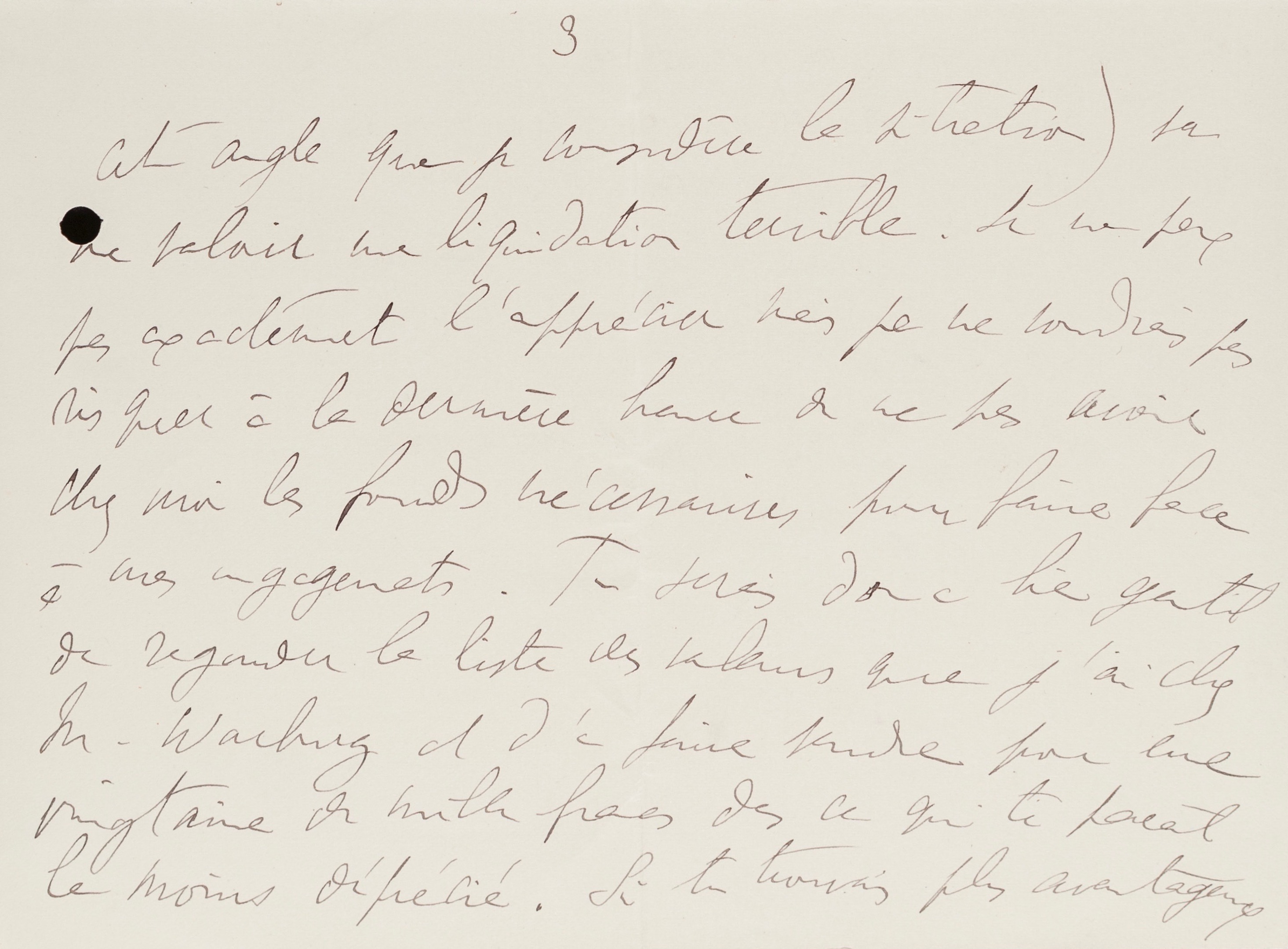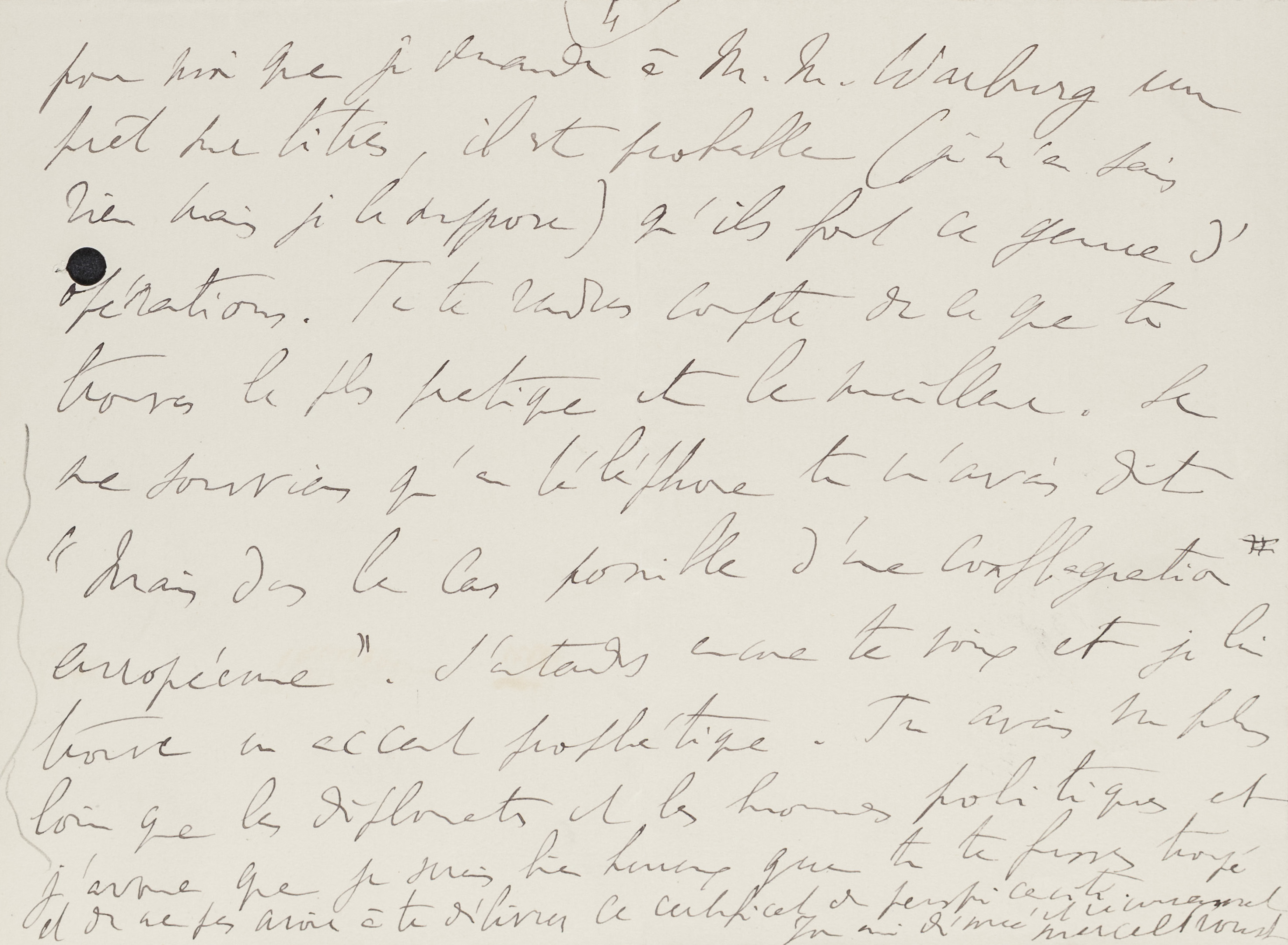By François Proulx, Assistant Professor, Department of French and Italian
Letter from Marcel Proust to Lionel Hauser, 26 July [1914] [1]
26 July
102 boulevard Haussmann
My dear Lionel
Shortly after I had a telephone conversation with you, I started to divest my holdings. I sold my 200 Utahs [2], and my innumerable Lena Goldfields [3]. Unfortunately, everything is not yet done, since the weakness of the prices did not allow it, and the thunderbolt of the Austro-Serbian incident [4] will earn me (of course this is a consequence of little importance, in the middle of the immense tragedies that are perhaps about to unfold for Europe, but as I am writing you as my banker and friend, I ask your permission to place myself in my personal and self-centered point of view, although I assure you that I do not view the situation from this angle) will earn me [5] some terrible losses. I cannot estimate it exactly, but I do not want to risk, at the last moment, not having on hand the funds necessary to face my various obligations. You would be most kind to look at the list of securities I have with M. Warburg [6], and to sell enough for twenty-some thousand francs, from those that, to your eyes, seem the least depreciated. If you thought it would be more advantageous for me to ask M. M. Warburg for a securities-based loan, it seems likely (I don’t actually know, but I suppose) that they do this kind of operation. You can figure out what you think is best and most practical. I remember how, on the phone, you told me “But in the possible event of a European conflagration…” I can still hear your voice, and I find it has prophetic undertones. You saw further than diplomats and politicians, though I confess I would be glad if you had been wrong, and I did not have to award you this certificate of cleverness.
Your devoted and grateful friend
Marcel Proust
[1] Letter catalogued as Proust-Series 3 / 2A (Proust to Hauser) / Hauser 042, Rare Book and Manuscript Library, University of Illinois at Urbana-Champaign.
[2] Proust had inquired to Lionel Hauser about buying stock in a copper-mining venture in Utah in October 1912 (Corr, vol. XI, p. 219).
[3] (Note by P. Kolb) Lena Goldfields was a gold-mining company, of which Proust owned a large amount of stock.
[4] Archduke Franz Ferdinand was assassinated in Sarajevo on 28 June 1914.
[5] Here Proust repeats three words from before the parenthesis.
[6] M. M. Warburg & Co., a private bank based in Hamburg (Germany), founded in 1798.
In this letter, Marcel Proust anticipates the “immense tragedies that are perhaps about to unfold for Europe.” He references “the Austro-Serbian incident” – the assassination of Archduke Franz Ferdinand in Sarajevo, a month earlier on 28 June – that would indeed lead to the “conflagration” of the First World War. The month of July 1914 saw an alarming march toward disaster, which Proust followed in the French press: Austria-Hungary delivered an ultimatum to Serbia on the 23rd, Serbia announced general mobilization on the 25th, and on the 28th, two days after this letter, Austria-Hungary declared war on Serbia. By August 4th, Germany, Russia, France and Britain had been drawn into the conflict.
The letter addresses the immediate financial consequences of the rush to war, as stock markets plummeted across Europe. Proust, who had inherited a fair amount of wealth after the deaths of his parents in 1903 and 1905, was never a wise investor. In a somewhat long parenthetical aside, he asks his “banker and friend” Lionel Hauser for “permission to place myself in my personal and self-centered point of view,” – that is, to focus on the monetary losses he is about to incur – “although,” he goes on to assure his correspondent, “I do not view the situation from this angle.” Proust places himself simultaneously in two points of view, both of which, remarkably, are expressed through the first person (“my personal … point of view, although … I do not view”). This seeming grammatical contradiction – one might have expected him to write, “a personal and self-centered point of view” – is in line with the complex use of the first person in Proust’s novel.
From the opening section of Du côté de chez Swann (published a few months earlier, in November 1913), the first person is used by an adult narrative voice and a younger protagonist, who are the same character although they have different points of view due to the passage of time, and who are not the author Marcel Proust although they share many similarities with him. In this letter, as it does in À la recherche du temps perdu, the first person allows Proust to imagine hypothetical scenarios (“I would be glad if you had been wrong”), explore multiple perspectives, and write from points of view that are simultaneously deeply personal and keenly aware of the larger patters of history and the human experience.
Works cited
Proust, Marcel. Correspondance. Ed. Philip Kolb. Paris: Plon (21 vols), 1970-1993.



